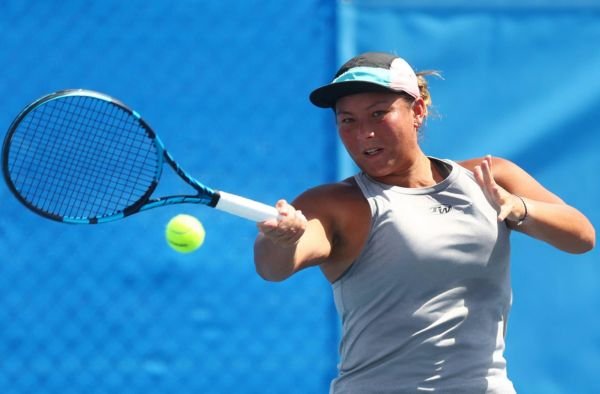In a significant development for tennis integrity, British player Tara Moore has been handed a four-year suspension after the Court of Arbitration for Sport (CAS) sided with the International Tennis Integrity Agency (ITIA) in her doping case. The decision closes a lengthy and dramatic saga that saw Moore, once the UK’s top-ranked doubles player, initially cleared—only to have her exoneration overturned and her sporting future thrown into uncertainty.

The Doping Case: Timeline and Key Facts
A Positive Test and Provisional Suspension
In April 2022, Tara Moore tested positive for anabolic steroids nandrolone and boldenone during a tournament in Bogotá, Colombia.
Moore was provisionally suspended in June 2022, a period that would span 19 months before her case was resolved.
Initial Tribunal Clears Moore
In December 2023, an independent tribunal cleared Moore, accepting her defense that contaminated meat consumed in Colombia caused the positive test result.
They ruled she “bore no fault or negligence” for the adverse analytical findings.
ITIA Appeal and CAS Review
The ITIA appealed the independent tribunal decision, arguing that Moore could not adequately explain the high levels of nandrolone found in her sample.
On July 15, 2025, CAS announced its decision, finding Moore was unable to prove that contaminated meat was the source and that her anti-doping rule violation (ADRV) was not unintentional.
Final Sanction
CAS overturned Moore’s previous clearance, issuing a four-year suspension effective July 15, 2025, subtracting the 19 months already served under provisional suspension.
Moore will not be eligible to compete professionally until early 2028.
The Evidence and the Ruling: Why Moore Lost Her Case
CAS’s decision focused on the inability of Moore’s defense to scientifically account for the concentration of nandrolone in her sample. The majority of the panel concluded that:
There was insufficient evidence connecting the doping result to contaminated food.
Moore bore responsibility for the substances found, as the defense did not establish unintentional ingestion.
The ITIA highlighted that all appeals are weighed carefully and only pursued when the scientific grounds are robust. In Moore’s case, independent expert advice reinforced that her explanation did not suffice.
Impact on Tara Moore and the Tennis World
Professional and Personal Fallout
Tara Moore, 32, had returned to competition in 2024, focusing on the ITF World Tour and qualifying for some Grand Slam main draws.
She publicly described suffering loss of reputation, ranking, and livelihood during her suspension.
Moore’s ban ends her career momentum and removes her from tour eligibility for nearly three more years.
Broader Context
The case follows closely behind high-profile doping suspensions, including bans served by current and former world No. 1 players in both men’s and women’s tennis.
Tennis Integrity Agency Statement
Karen Moorhouse, ITIA CEO, remarked:
“Our bar for appealing a first instance decision is high, and the decision is not taken lightly. In this case, our independent scientific advice was that the player did not adequately explain the high level of nandrolone present in their sample. Today’s ruling is consistent with that position.”
FAQs: Tara Moore’s Doping Ban Explained
1. Why was Tara Moore banned for four years?
Tara Moore received a four-year ban after a positive test for anabolic steroids in 2022, and the CAS found her explanation—contaminated meat—not sufficiently proven.
2. When does Tara Moore’s ban start and end?
The ban is effective from July 15, 2025, but Moore receives credit for an initial 19-month provisional suspension. She can next compete in 2028.
3. What substances did Moore test positive for?
Moore tested positive for nandrolone and boldenone, both anabolic steroids prohibited in professional tennis.
4. Did an independent tribunal initially clear Moore?
Yes, an independent tribunal originally concluded Moore bore “no fault or negligence,” but this ruling was overturned after the ITIA appealed to CAS.
5. Has Moore responded to the final ruling?
As of now, Tara Moore has not publicly responded to the CAS decision.
Conclusion: A Landmark Ruling With Ramifications
The upholding of Tara Moore’s four-year doping ban marks a decisive end to one of tennis’s most scrutinized anti-doping cases in recent years. Moore’s battle to clear her name captured the sport’s attention, but the ultimate ruling underscores the strict requirements for athletes to prove innocence in doping violations. The case serves as a lasting reminder of the seriousness with which tennis’s governing bodies pursue fair play—and the consequences athletes face without incontrovertible evidence.


